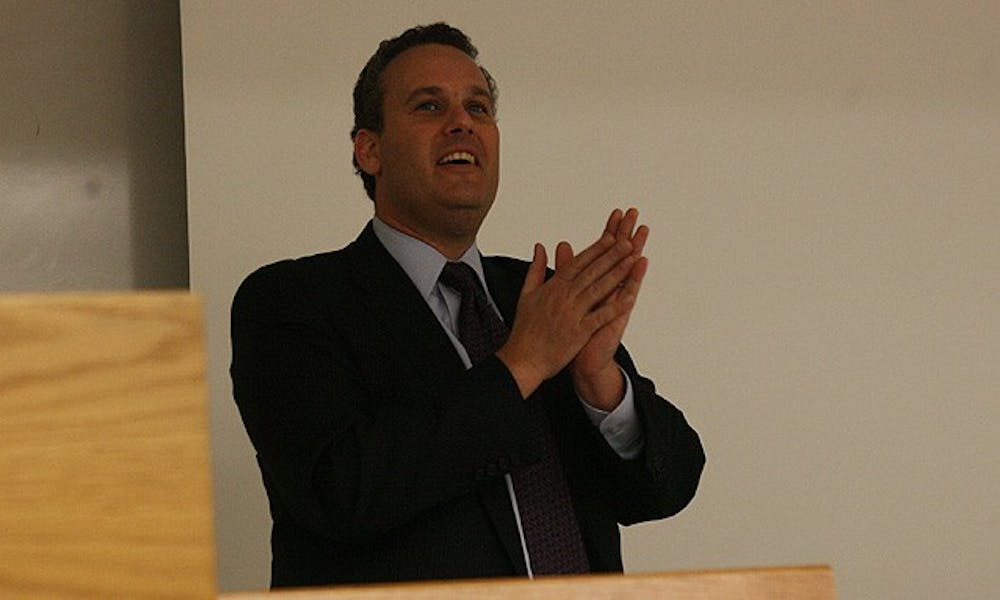In emergency situations, bureaucracy and inefficiency hamper traditional relief efforts, FEMA Chief of Staff Jason McNamara said Tuesday night.
The Federal Emergency Management Agency administrator spoke about the organization’s “whole community approach to emergency management.” The approach is an alternative to traditional top-down command, which he said he sees as too generalized of an approach.
The speech was the first event of this year’s Provost’s Lecture Series, which is titled “Natural Disasters and Human Responses.”
“A lot of times, we look at emergency management as a generic approach,” said McNamara, who has more than 15 years of emergency management experience. “[We need to get] out of the mind set of an overly centralized, bureaucratic kind of one-size-fits-all approach to recovery.”
His proposed “whole community approach” alternative is a more decentralized method that better fits a community’s specific needs. He added that FEMA began to integrate it during the past six to eight months. The philosophy focuses on fostering partnerships between local institutions and communities, governmental organizations and private sector groups.
The approach accounts for issues sometimes overlooked by federal organizations, such as the need for child-friendly shelters, housing units with easy access for the disabled and meals with more nutritional value than the meals-ready-to-eat often distributed at disaster sites, he said.
“We need a closer relationship with the private sector to bring those communities online,” McNamara said. “Faith-based groups are [also] a critical partner. It’s about leveraging and enhancing those things your community does on a day-to-day basis.”
Before becoming FEMA chief of staff, McNamara worked in both corporate and government emergency management positions. His wide-ranging experiences include assisting in the responses to the Sept. 11 attacks, the anthrax attacks on the U.S. Senate, the Oklahoma City bombing and Hurricane Opal in 1995.
McNamara said that although many relief organizations latch onto the Department of Defense’s model of top-down leadership, in emergency situations this method is inefficient and slow, and it does not adequately tailor responses to individual communities’ needs.
“A lot of federal agencies will fall into that mentality,” he said. “In a disaster, [this is] way too slow, and you don’t have the same information as the people on the ground. If you move forward with centralized decision making, you’re asking for trouble. [It is] a recipe for failure.”
The Hurricane Katrina relief effort was an example of this sort of dysfunctional leadership, McNamara said. The government was unable to make swift decisions and was “seeking information instead of seeking solutions.”
FEMA will release new guiding principles on its website next week, McNamara said. The principles are teamwork, engagement, getting results, preparation, empowerment, flexibility and accountability.
“We’re learning slowly,” he said. “The more we can show folks why what we are saying is correct, the better off any emergency response is going to be.”
Get The Chronicle straight to your inbox
Signup for our weekly newsletter. Cancel at any time.

